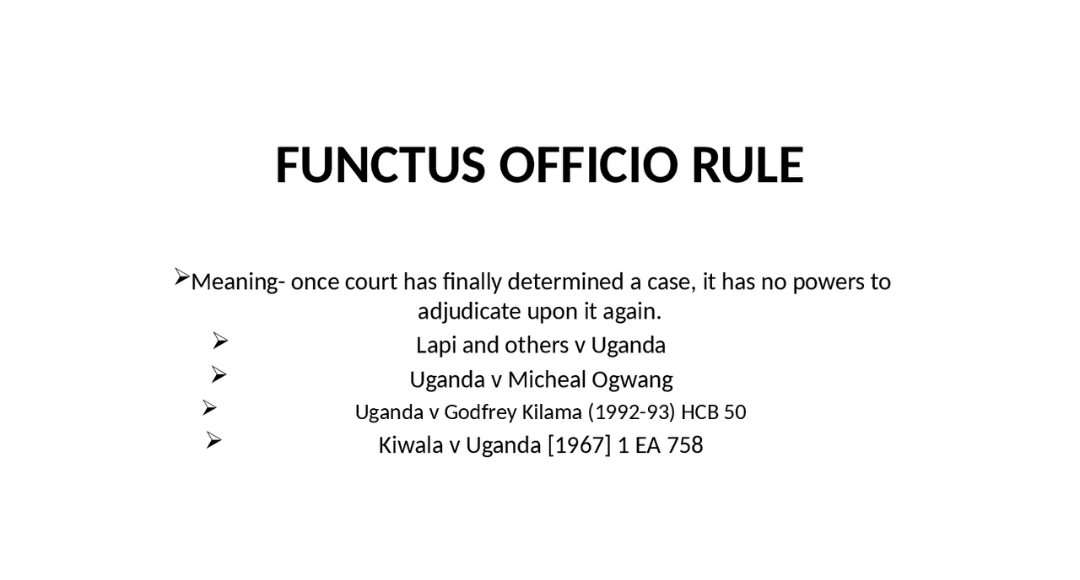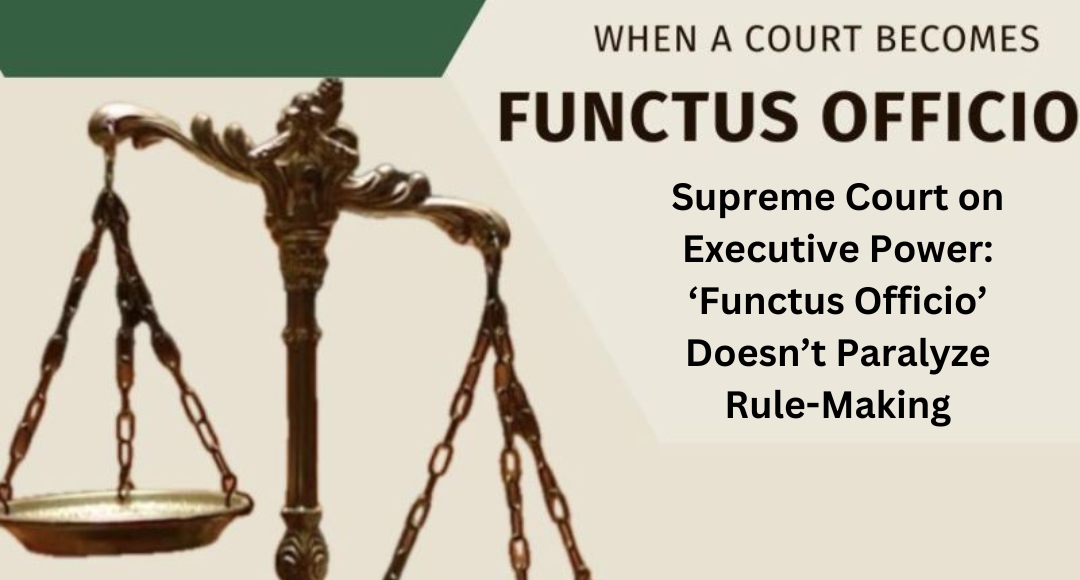Hello friends! Sometimes government decisions are such that they matter a lot not only in the legal world but also for the general public. The Supreme Court has recently given an important verdict, stating that the principle of ‘Functus Officio’ does not apply to the executive rule-making authority. This decision not only clarifies the legal process but also affects the policy-making ability of the state government. Let us understand this decision in simple language.
What is the ‘Functus Officio’ principle?

‘Functus Officio’ is a legal principle, which means that once any judicial or quasi-judicial institution takes a decision, it cannot reconsider it. This principle mainly applies to courts or judicial bodies, not to executive or policy-making bodies. The Supreme Court clearly said that this principle cannot limit the rule-making power of a state government.
What was the case?
The case involved some engineers who were temporarily appointed to the post of Assistant Executive Engineer (AEE). Despite working for 13 years, the government refused to grant them seniority. The engineers filed several appeals against this, following which the state government amended its earlier order. However, this amendment was quashed by the High Court, saying that the government has lost the right to change anything in the matter after its earlier order, as it has become ‘Functus Officio’.
What did the Supreme Court say?
When the matter reached the Supreme Court, a bench of Justice P.S. Narasimha and Justice Sandeep Mehta quashed the High Court’s decision. They said that the state government can change its policy decisions and the principle of ‘Functus Officio’ does not apply to it. The court clarified that if the government has to hear all the affected people before making any policy change every time, the governance will come to a standstill and it will be difficult to take any administrative decision.
What will be its effect?

It has become clear from this decision that the government can change its policies and it will not be affected by ‘Functus Officio’. This decision will help in the smooth running of administrative work and will ensure that the government can continue its policy-making process independently. This decision of the Supreme Court is not only legally important, but it also strengthens the administrative system. It ensures that the policy-making process of the government is not disrupted and it can make necessary changes according to the time.
Disclaimer: This article is written for information purposes only. The information given in it is not legal advice. It is necessary to take expert opinion in any legal matter.
Also Read:
Understanding the Law of Torts Bare Act: A Complete Guide
Supreme Court Slams Haryana Police for Chaining Accused to Hospital Bed






